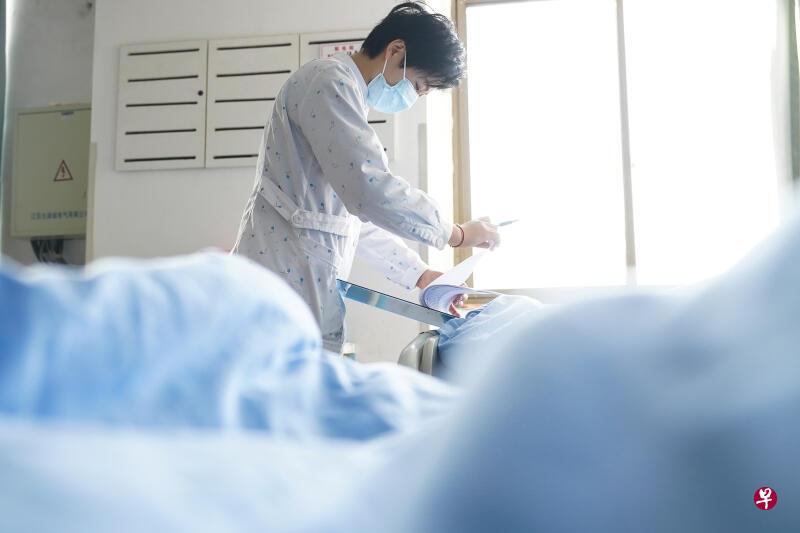
Scholars pointed out that the medical insurance system should tend to ordinary outpatient clinics, and more community medical institutions need to be developed to respond to rapid growth in demand.However, unlike Singapore and Hong Kong with a large number of general clinics, China's grass -roots medical care is very weak. Patients rushing to outpatient clinics will cause the medical system to be crowded.
The China National Medical Security Agency for the second time within 10 days of the medical insurance reform, which caused a private rebound for medical insurance reforms, emphasized the need and benefits of medical insurance reform, and also showed that the localities will continue to implement the reform and deployment.The analysis believes that the wave of protests against medical insurance reform is unlikely to upgrade, but if the fundamental problem of the medical insurance system is not resolved in time, it will launch a foreshadowing for the future of greater contradictions.
The official website of the State Medical Insurance Bureau issued a long article entitled by the relevant questions of the reporter's medical insurance outpatient protection mechanism for the reform of the medical insurance clinic for medical insurance, and explained the development process of the Chinese medical insurance system, as well asThe background and specific path of this reform.
The Chinese employee's medical insurance system was established in 1998, consisting of social coordinated accounts and personal accounts.The overall accounts are mainly used to ensure hospitalization costs. Personal accounts are mainly used to ensure ordinary outpatient clinics and drug purchase costs.
The article pointed out that after more than 20 years of establishment of the employee's medical insurance system, chronic diseases have become the main disease that affects the health of Chinese residents. The most effective treatment for such diseases is to get early treatment and early treatment through outpatient clinics.In addition, China's aging speed is accelerating, and the demand for outpatient clinics of retirees has increased significantly. However, the original system has insufficient guarantee for outpatient clinics. The elderly's minor illnesses are dragged into major illnesses.To this end, the public's request to reimburse the cost of reimbursement of ordinary outpatient clinics is getting higher and higher.
The person in charge of the Medical Insurance Bureau explained that after the reform, the reimbursement of ordinary outpatient clinics has increased. Participants can enjoy reimbursement in ordinary outpatient clinics. To a certain extent, they can alleviate the problem of "inpatient difficulties".In addition, the scope of personal account use has also expanded from the insured himself to family members.
The person in charge disclosed that 99 % of the overall planning medical insurance areas in China have carried out ordinary outpatient clinics and overall planning. This new regulations reduced the employee's medical burden of 108.6 billion yuan last year (RMB, the same below, S $ 21.1 billion).This year's designated medical institutions in the country have achieved 441 million people in general outpatient clinics, and the settlement amount has completed 46.24 billion yuan.
The core of this medical insurance reform is to replace some of the funds that are part of the personal account and replace it with general outpatient clinics.Since the beginning of this month, the retirees of Wuhan and Dalian, Liaoning have decreased significantly due to dissatisfaction with their personal accounts, and they have gathered in front of the municipal government to protest and demanded that the official restoration of the original regulations.Some protesters in Wuhan said that the funds scratched by personal accounts per month were reduced from the original 260 yuan to more than 80 yuan.
Medical Insurance Bureau: Some local reform dividends have not been fully released
After the protests attracted the attention of public opinion, the State Medical Insurance Bureau issued a notice on February 15, requiring medical insurance departments at all levels to encourage fixed -point retail pharmacies to open outpatient clinics.
The person in charge said that due to the imbalance of reforms in various places, "some local reform dividends have not been fully released." Next, it will guide localities to incorporate more pharmacies into the scope of the clinic reimbursement and promote grass -roots medical institutions to equip more drugs.Essence
At the same time, it is reported that Wuhan police are investigating those who have previously participated in local protests, and at least five participants have been arrested.
Scholars: Reform must be long -acting must set up graded diagnosis and treatment to strengthen grassroots construction
Lu Xi, assistant professor of the School of Public Policy of the National University of Singapore, Lu Xi, an assistant professor at the School of Public Policy, was judged in an interview with Lianhe Morning Post. Under the current high -pressure control, the wave of protests in various places is unlikely to be further upgraded.However, if the fundamental contradiction of medical insurance reform is not resolved in time, it will launch greater hidden dangers for the future.
Lu Xi pointed out that the medical insurance system must be tilted to ordinary outpatient clinics, and more community medical institutions need to be developed to meet the needs of rapid growth.However, unlike Singapore and Hong Kong, which have a large number of general clinics, grassroots medical care in mainland China are very weak. If patients are rushing to outpatient clinics, they will inevitably lead to crowding in the medical system."The medical insurance reform must be long -term, and the hierarchical diagnosis and treatment mechanism must be established and the construction of grass -roots medical institutions, including allowing private capital to enter the market. If it is just forced to implement it, many contradictory foreshadowing will be laid."
Xing Ziqiang, the chief economist of Morgan Stanley China, believes that medical insurance reform is only one of the difficulties caused by China's rapid aging.The New York Times quoted Xing Ziqiang's statement that medical insurance issues were only "Chapter 1", "There are more and more retired people, and the pension (problem) is the second chapter."



